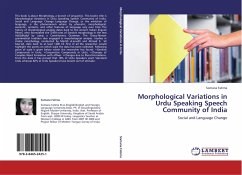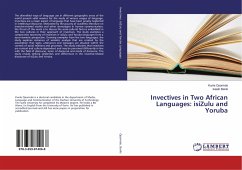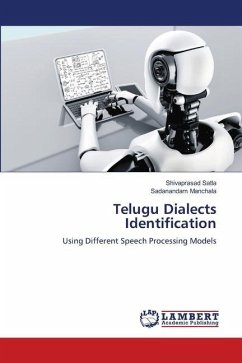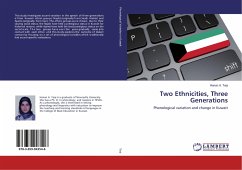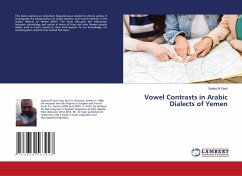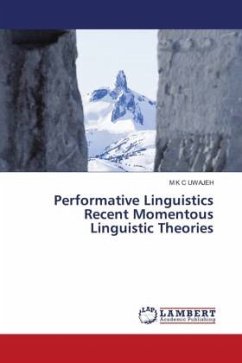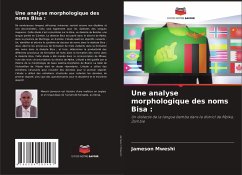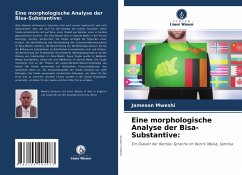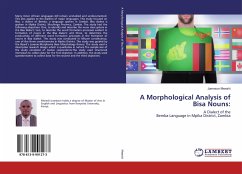
A Morphological Analysis of Bisa Nouns:
A Dialect of the Bemba Language in Mpika District, Zambia
Versandkostenfrei!
Versandfertig in 6-10 Tagen
41,99 €
inkl. MwSt.

PAYBACK Punkte
21 °P sammeln!
Many minor African languages still remain unstudied and undocumented. This also applies to the dialects of major languages. This study focused on Bisa, a dialect of Bemba, a language spoken in Zambia. Bisa dialect is spoken in Mpika District, Muchinga Province, Zambia. The study had the following objectives: One, to identify and describe the noun class system in the Bisa dialect; two, to describe the word formation processes evident in formation of nouns in the Bisa dialect; and three, to determine the productivity of different word formation processes in the formation of nouns in Bisa dialect...
Many minor African languages still remain unstudied and undocumented. This also applies to the dialects of major languages. This study focused on Bisa, a dialect of Bemba, a language spoken in Zambia. Bisa dialect is spoken in Mpika District, Muchinga Province, Zambia. The study had the following objectives: One, to identify and describe the noun class system in the Bisa dialect; two, to describe the word formation processes evident in formation of nouns in the Bisa dialect; and three, to determine the productivity of different word formation processes in the formation of nouns in Bisa dialect. This study was conducted in Mfuwe constituency, one of the three constituencies in Mpika District. The study was guided by the Beard's Lexeme-Morpheme Base Morphology theory. The study used a descriptive research design which is qualitative in nature.The sample size of the study consisted of twelve respondents.The study used structured interviews to collect data for the first objective. Inaddition, the study used questionnaires to collect data for the second and the third objectives.



